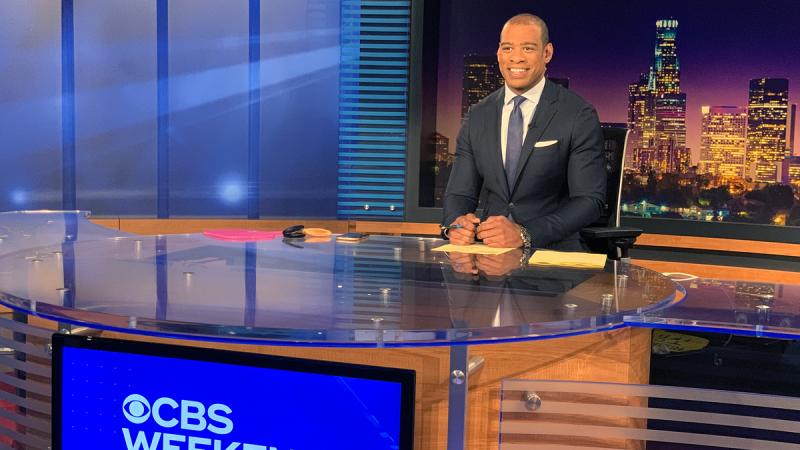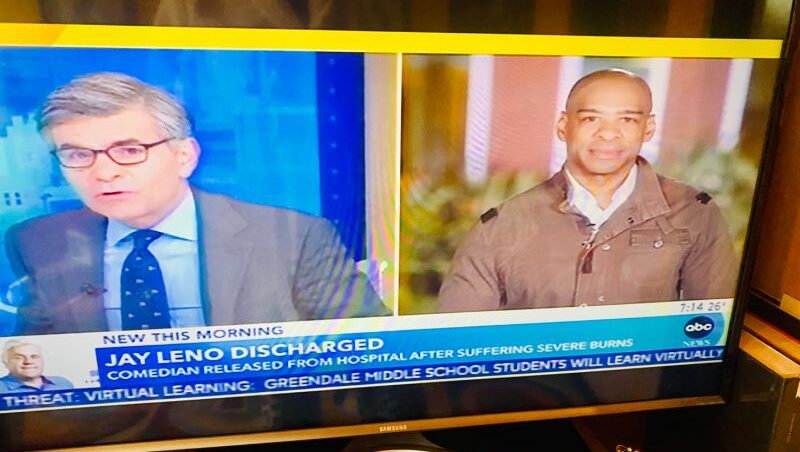
‘No Time Frame’ as Internal Investigation Continues
DeMarco Morgan, who just joined ABC News after working at CBS since 2015, has started as fill-in replacement for T.J. Holmes on ABC’s “GMA3” after Holmes and co-host Amy Robach were taken off the air Monday “just days after their romantic relationship became public and turned into a tabloid sensation,” as John Koblin and Michael M. Grynbaum phrased it in the New York Times at the time.
There was no official announcement of Morgan’s temporary new duties, ABC News spokesperson Allison Rudnick told Journal-isms on Saturday — “No announcement or time frame,” she said — but the announcement stirred some on social media.
“Black Twitter has had a field day pointing out the similarities between the two light-skinned, pretty-boy anchors,” Alexandra Jane wrote Saturday on The Root. “Not only that, but it might be safe to say that GMA3 has just expanded its viewership with the Black and ahem…thirsty among us.”
ABC News launched an internal review focused on Holmes and Robach, according to Max Tani at Semafor (see item below). Unlike Holmes, 45, Morgan, 44, is single.
Morgan said goodbye to “CBS2 News This Morning” in Los Angeles on April 29, according to Mary Connelly, writing Thursday for The Sun.
“He left on an amicable note, with multiple co-workers sending him well wishes and speaking highly of their time working with Morgan,” she wrote.
A LinkedIn friend congratulated him two weeks ago on his first report for “Good Morning America.”
Among his stories there this week was one about quarterback Deshaun Watson returning to the field after an 11-game suspension for violating the NFL’s personal conduct policy.
On Thursday, as fill-in on “GMA3,” Morgan and co-host Stephanie Ramos continued ABC’s coverage of the release of WNBA star Brittney Griner from a Russian prison.
Active in the National Association of Black Journalists, and a graduate of Jackson State University as well as of Columbia Journalism School, Morgan was one of the emcees of the NABJ’s virtual awards ceremony (video) in 2021.
When he was shifted from New York to L.A. in 2019, CBS said he had reported for all platforms, and among other achievements, “covered the funeral of Aretha Franklin, delivered a series of reports on the nation’s heroin epidemic, was the first journalist on the air for the Network anchoring a special report on the Pulse nightclub shooting in Orlando, and secured an exclusive interview with U.S. Attorney General Loretta Lynch on community policing.”
What Happened to Griner’s Locs?
December 9, 2022
What Happened to Griner’s Locs?:
Release Proves Journalists Will Be Journalists
ABC Begins Internal Probe of Holmes, Robach
MSNBC Leader Took Case Against Cross to ‘The View’
Columnist Quits Over Editor’s Requested Changes
Police Facebook Pages Overrepresent Black Suspects
Making Black Attitudes Part of the Runoff Story
Press Freedom to Be Topic at U.S.-African Summit
Fun, Unexpected, Uneasy: The AI Version of Himself
White, Vargas, Baldonado Leaving L.A.’s KNBC
Reuters Reveals Forced Abortions in Nigeria
Press Freedom Winner: Why I Had to Leave Cuba
Gonzalez on ‘the Nonsense of Objective Journalism’
John Fountain’s Farewell Column: ‘A Black Journalist at Last Set Free’
Short Takes: Jared A. Ball; John Yang; Maudlyne Ihejirika; unrecorded fatal police shootings; faith and religion coverage critiqued; Blacks, others differ on structural racism; Latina Equal Pay Day; Prince Harry and Meghan; website on ‘missing white woman syndrome’; Al Roker; Catherine Kim; Asian American reporters, anchors, meteorologists and hosts;
Tommy Cummings; Michael Lewis; tired of reading about “the first”; African Americans and polio; Yamiche Alcindor; SportsKid of the Year; MJ Lee; Richard Lapchick; from “Indian Country” to “indigenous communities”; Stan Stovall; Rod Carter, Dan Holly and NABJ at St. Augustine’s University; cuts at CNN Brazil; claim of assassination in Kenya; Jamaica media workers assaulted; Shireen Abu Aqla; sources paying journalists; repression of free press in El Salvador; harassed Guatemala newspaper halts print edition.
Support Journal-isms
(Credit: Twitter)
Release Proves Journalists Will Be Journalists
Amid the jubilation at Russians’ release of WNBA player Brittney Griner Thursday, CNN’s Kevin Liptak and Phil Mattingly reported that, “The publicity surrounding Griner, including celebrities posting criticism of the Biden White House on social media for not moving more quickly to secure her release, appeared to raise the Russian price for Griner’s release, law enforcement officials said.
“That added to concerns that the deal increases the likelihood that Russia, Iran and other countries could use the arrest of Americans to try to use the publicity to gain concessions the US otherwise wouldn’t give.”
But journalists will be journalists. At a press call on the release Thursday morning, Madison J. Gray of BET.com asked whether there was evidence of racism by the Russians while Griner was in custody, and April Ryan of theGrio questioned whether Griner’s release set a precedent for securing the release of Americans.
Ryan reported the answer she received. “Now, given how extremely rare this is, any inference that somehow this [will] become the norm would be mistaken,” the “senior administration official” replied.
Gray was told that as for racism, the administration was eager to learn from Griner what took place.
But as Griner arrived Friday morning in San Antonio, TMZ noticed that something was missing: Griner’s locs — a touchy racial issue, at least in the United States.
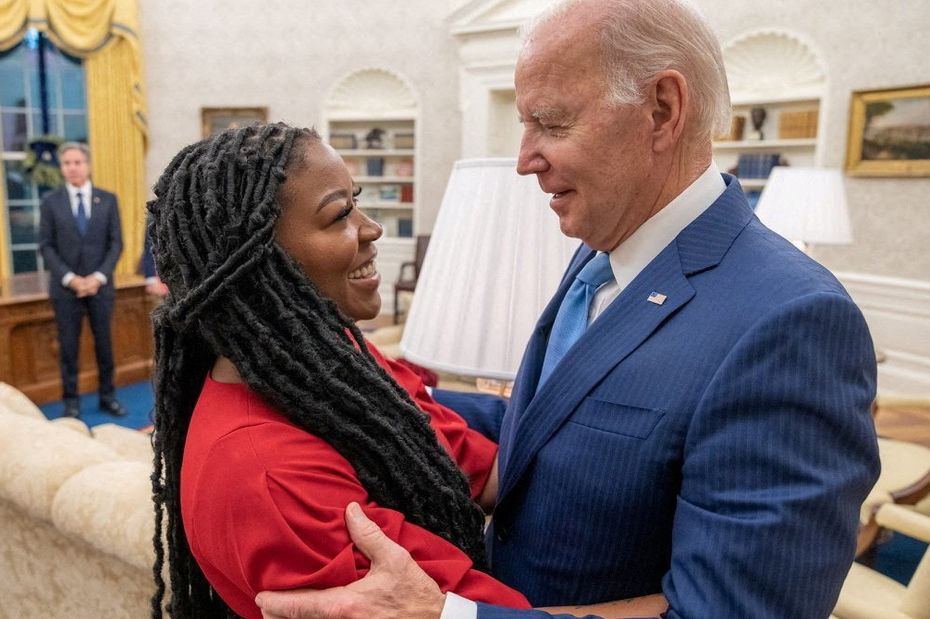 NewsOne and BlackAmericaWeb reported, “Noticeably missing from Griner was her signature crown of lengthy locs, prompting speculation about both why and by whom her hair was cut. TMZ released the video that has since gone viral showing Griner and [freed Russian arms dealer Viktor] Bout accompanied by Russian and American officials during the prisoner swap on Thursday. It appears to have taken place on an airport tarmac. (Photo shows Griner’s wife, Cherelle Griner, with President Biden. Credit: White House)
NewsOne and BlackAmericaWeb reported, “Noticeably missing from Griner was her signature crown of lengthy locs, prompting speculation about both why and by whom her hair was cut. TMZ released the video that has since gone viral showing Griner and [freed Russian arms dealer Viktor] Bout accompanied by Russian and American officials during the prisoner swap on Thursday. It appears to have taken place on an airport tarmac. (Photo shows Griner’s wife, Cherelle Griner, with President Biden. Credit: White House)
“Other photos posted to social media purport to show Griner after being released from Russian custody. Those photos show Griner with a short-cropped haircut.
“Griner was shown as recently as late October with her locs intact. That was when she was sentenced to nine years in a Russian prison following a questionable guilty verdict for smuggling drugs. No new photos of Griner had been made public since then, making her appearance without her signature locs all the more shocking. . . .”
As it turned out, Griner’s attorney Maria Blagovolina told ESPN that Griner cut the hair herself. “Griner made one decision while there that came as a surprise to fans who saw video of her Thursday: Her signature hair had disappeared,” ESPN’s T.J. Quinn reported. “Blagovolina said Griner cut it two Sundays ago and had told her attorneys she planned to do it to make life a little easier during the Russian winter. It was clear Griner was preparing herself for the long haul.
‘” It’s very cold in there and every time she washed her hair she got cold and would get a chill,’ she said. ‘She should have waited until New Year’s Day.’ “
Meanwhile, at the White House, CBS journalist Weijia Jiang zeroed in on the concern of many that releasing “merchant of death” Bout as part of a prisoner swap for Griner left behind fellow Americans Paul Whelan and Marc Fogel.
“How do you dispel the public perception that if you are a celebrity or a professional athlete, you get preferential treatment in a situation like this?” Jiang asked.
“This was not a choice for us on . . . which American to bring home. That was not the choice. It was a choice between bring home one American or bring home none. And we brought one home today… just like we were able to bring home Trevor Reed back in April,” Press Secretary Karen Jean-Pierre replied, Steven Nelson reported for the New York Post.
The Griner case also demonstrates that journalists can responsibly keep secrets, Tom Jones reported Friday for the Poynter Institute.
“For the record, CBS News was the first to break the Griner story. Apparently, CBS News learned last week that a deal between the U.S. and Russia was being brokered and it held off from reporting it so as not to put the deal in jeopardy.
“On the air Thursday, CBS News’ Margaret Brennan told viewers, ‘CBS first learned that this swap was going to happen last Thursday. CBS News agreed that the Briner-for-Bout swap, which we knew was underway … that we would not report the details of it. This was at the request of the White House, which asked us not to make it public because officials expressed grave concern about the fragility of the emerging deal and feared it would impede the safety — perhaps put those Americans at risk.’ ”
Jones also answered the question of how The New York Times would cover the historic development on a day when more than 1,100 unionized employees walked off the job for a 24-hour strike.
“If you went to The New York Times’ website on Thursday, the Griner story was the main featured story. And it was written by two prominent Times White House correspondents — Peter Baker and Michael Shear. The two high-profile reporters were not among the Times staffers who walked out Thursday. . . .”
- Candace Buckner, Washington Post: Brittney Griner is free, but reclaiming her story will be no easy task
- Evette Dionne, MSNBC: The cruel irony at the heart of Brittney Griner’s Russia debacle
- JD Glass, the Advocate: Russia Shares Footage of Brittney Griner on Plane, Her Release
- Nayyera Haq, MSNBC: Brittney Griner was a pawn in Putin’s relentless crusade to divide America
- Stephanie Holland, The Root: Don’t Let Critics of Brittney Griner’s Release Ruin Our Joy for Her Return
- John Hudson, Devlin Barrett, Karen DeYoung and Missy Ryan, Washington Post: In freeing Griner, Biden faced resistance abroad and at home
- Eugene Robinson, Washington Post: Trading Brittney Griner for an arms dealer was a good deal
- Margo Snipe, Capital B: How Black Women Fought for Brittney Griner’s Release

ABC Begins Internal Probe of Holmes, Robach
“ABC News launched an internal review focused on stars of its signature morning show, which company insiders say could lead to a top host’s departure,” Max Tani reported Wednesday for Semafor.
“The network has been roiled over the past two weeks over the unfolding saga of a reported romantic relationship.
“That review, headed up by top ABC lawyer Tanya Menton, is examining the relationship between T.J. Holmes and Amy Robach, the anchors of the third hour of Good Morning America, and whether they violated company policies. Her review is also looking into whether subsequent allegations in Page Six about other reported relationships between Holmes and ABC News employees violated policies about relationships between bosses and subordinates. The review focuses on morality language in Disney’s corporate handbook. . . .”
- Stephanie Holland, The Root: GMA 3 Removes Anchors from Air. But What Will Happen to T.J. Holmes’ Career?
- Aja Romano, Vox: The Good Morning America anchors made cheating scandals fun again
- Heather Schwedel, Slate: ABC Has Committed a Grave Injustice on Us All With Its Response to the Good Morning America Affair
- Emily Yahr and Sarah Ellison, Washington Post: Amy Robach, T.J. Holmes and the high-wire act of co-anchor chemistry
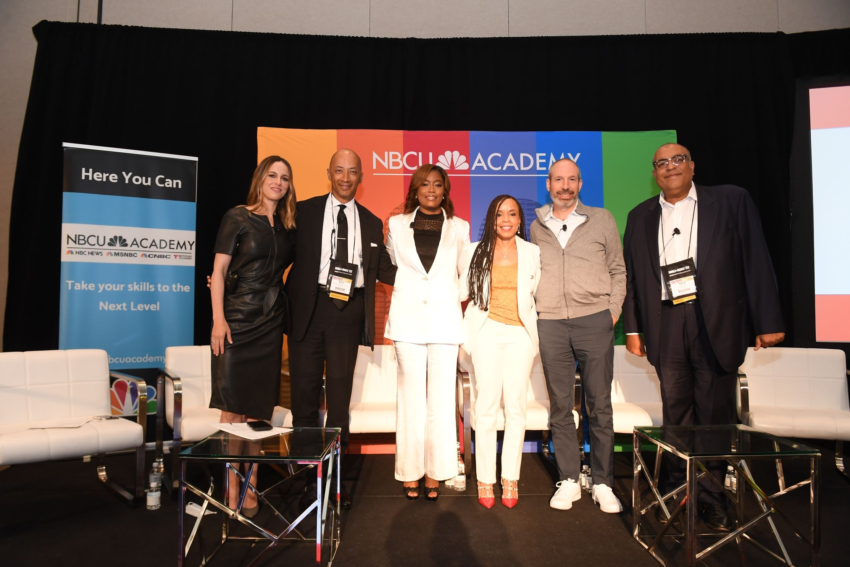
MSNBC Leader Took Case Against Cross to ‘The View’
Three days after MSNBC President Rashida Jones abruptly let go weekend anchor Tiffany Cross (pictured, below), Jones visited the set of “The View,” which airs on rival network ABC, to discuss the situation, Matt Donnelly reported Friday for Variety. The visit “raised eyebrows in the news biz,” Donnelly wrote.
 “ ‘It’s beyond odd that the head of a rival news operation at a different network would come to “The View,” ‘ noted one source with knowledge of the visit. Another individual present that day agreed it was ‘bizarre’ that a top executive from NBCUniversal would step foot inside ABC.”
“ ‘It’s beyond odd that the head of a rival news operation at a different network would come to “The View,” ‘ noted one source with knowledge of the visit. Another individual present that day agreed it was ‘bizarre’ that a top executive from NBCUniversal would step foot inside ABC.”
Donnelly wrote, “The long-running ABC talk series was prepping the show for the day before the midterm elections — a nail-biting event that ended up with the Democrats retaining control of the Senate and Republicans taking the House.
“To bolster the show’s panel, led by moderator Whoopi Goldberg, Nicolle Wallace was joining as a guest to discuss a new series she hosts for Peacock surrounding mental health awareness. As a former member of ‘The View,’ Wallace was no stranger to the Upper West Side Manhattan studio where the show is filmed. While Wallace was on hand to discuss her series, Jones had a different hot topic in mind, four sources aware of her dealings that day said. . . .
“Cross was the firebrand weekend host of ‘The Cross Connection,’ a host who’d drawn the ire of rightwing pundits such as Tucker Carlson, and had also raised eyebrows — both internally, and among some viewers — with her blunt on-air comments about political figures like Supreme Court Justice Clarence Thomas. Cross’ firing has been the subject of numerous conversations initiated by Jones with elite media figures in recent weeks, nearly a dozen individuals interviewed by Variety said. Many of the sources who spoke to Jones, a rare Black female leader in the sector, felt her efforts to present her case to industry insiders underlined how controversial the decision was to fire Cross in the first place. Some are concerned that Cross was unfairly penalized for being an outspoken Black journalist.
“Bryan Freedman, the high-powered attorney Cross retained after her ouster from MSNBC, told Variety that Jones’ behavior was harmful to his client. ‘There’s one kind of wrong in going around trying to justify one’s unjustifiable behavior. But, at Rashida’s level, in doing so, what she’s actually doing is defaming Tiffany in the process,’ Freedman said. . . .”
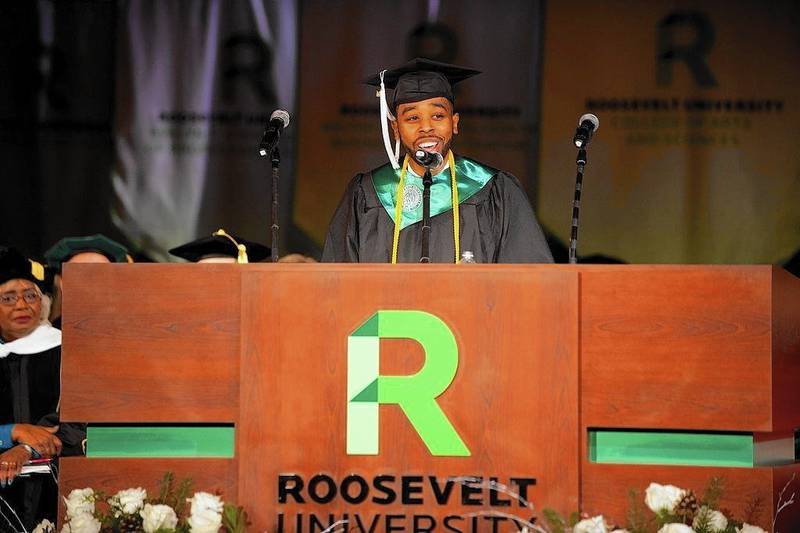
Columnist Quits Over Editor’s Requested Changes
John W. Fountain, a veteran journalist who teaches at Roosevelt University and writes a Sunday column for the Chicago Sun-Times, has resigned from the newspaper in a dispute with new top editor Jennifer Kho (pictured below), who wanted to make changes in his column that Fountain said went too far.
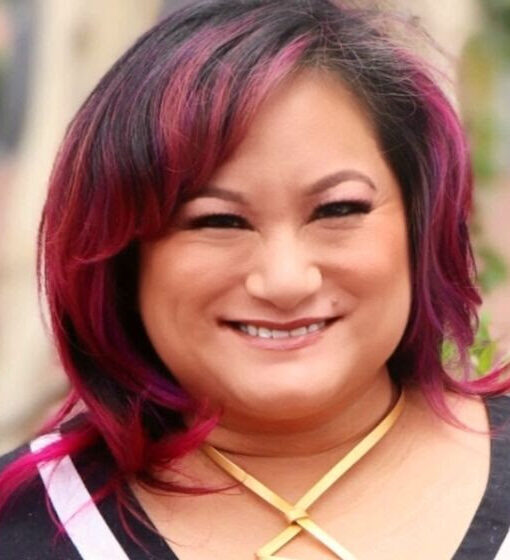 Kho, former managing editor of HuffPost and Guardian US, did not respond to a request for comment. Of Indonesian heritage, she is the first person of color to lead its newsroom. She had not before edited Fountain’s columns, he said.
Kho, former managing editor of HuffPost and Guardian US, did not respond to a request for comment. Of Indonesian heritage, she is the first person of color to lead its newsroom. She had not before edited Fountain’s columns, he said.
[Update: Kho messaged Dec. 13: “I wish we could have resolved this issue, but I respect John’s decision to resign. My approach is to be highly collaborative with writers, whether they are reporters or columnists, to elevate their voices in the editing process. My goal is to help them not only reach, but also touch, our readers and make their work as impactful as possible. John’s departure is not the outcome any of us wanted. I’ve enjoyed reading his columns and I appreciate his voice and his work to inform our community over 13 years.”]
Fountain wrote on Facebook, ” ‘You think you write so perfect that you don’t need an editor,’ the editor at Sun-Times told me on Nov. 25, upon giving me three options on my pending column:
“One of her two revisions on MY column.
“Or the option to take another stab at it with her suggestions in mind.
“I chose option four: Neither.
” ‘Well we [won’t] run the column’
“My next two words rose from [my] soul and rolled from my lips with ease, setting me finally free.
” ‘I resign.’ “
Fountain began at the Sun-Times in 2010. His disputed column was about Aaron Lee, a journalism student he mentored at Roosevelt University.
Ginger Brashinger of the Chicago Tribune wrote about Lee in 2015. “Fountain, a Roosevelt University journalism professor, author and newspaper columnist, was one ‘who noticed my talent’ and became a great role model and mentor, Lee said.
“It was through Fountain’s encouragement and a directive to ‘dig deeper’ while writing a memoir for Fountain’s journalism class that Lee found the courage to tell the story of his battle with Crohn’s [Disease]. He had kept the story from most people because of embarrassment and in an effort to avoid being treated differently, he said. . . .”
In explaining the disagreement to other editors, Fountain wrote, “Essentially, she said she thought it moved too slow, was confusing, and did not get to the news of Aaron Lee’s documentary airing.” She suggested cutting whole paragraphs.
“I explained that I had been deliberate in structuring the column and intentional in my decision to delay revealing to the reader Aaron’s ‘big news,’ ” that Lee had succumbed to the disease. “That this as a column was different from a hard news story or a feature.
“And that as a columnist, my words and the way I choose to tell the story are essential to my voice and perspective. I was always respectful, never raised my voice and several times prefaced my responses to Jen with the words, ‘with all due respect and humility,’ even as her voice and tenor grew terser and more irritated, if not angry, and even as she said things to me that were presumptuous and also disrespectful.
“She told me, in fact, that I think my writing is too perfect to need an editor (a near direct quote). I explained that I did not and that indeed I tell my students that every writer needs an editor. I always have needed an editor and always will. . . .”
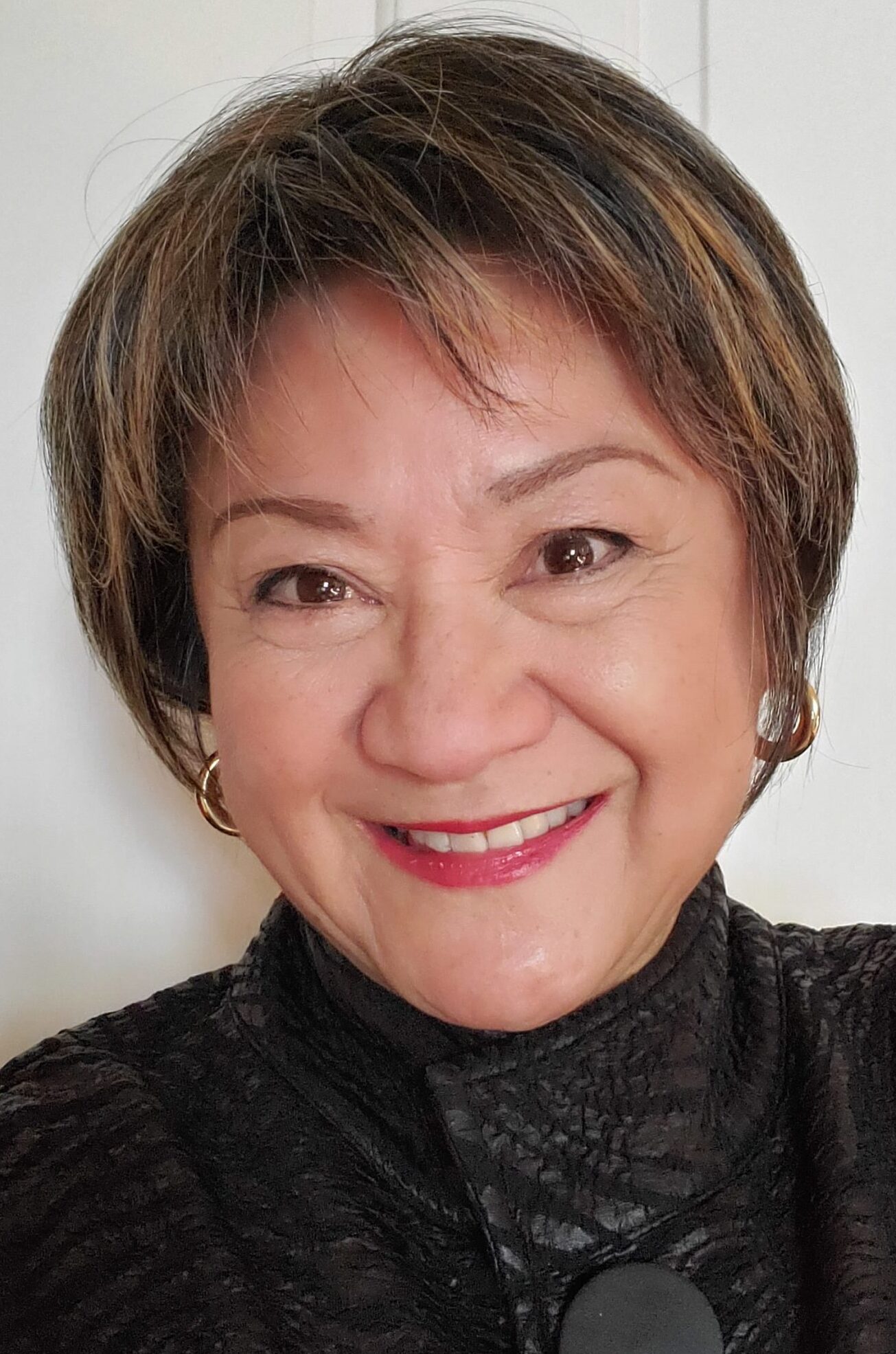 Writers and editors have always had their disagreements, columnists included. Suzette Martinez Standring (pictured), a columnist herself and former executive director of the National Society of Newspaper Columnists, addresses the issue in her 2008 book, “The Art of Column Writing: Insider Secrets from Art Buchwald, Dave Barry, Arianna Huffington, Peter Hamill and Other Great Columnists.”
Writers and editors have always had their disagreements, columnists included. Suzette Martinez Standring (pictured), a columnist herself and former executive director of the National Society of Newspaper Columnists, addresses the issue in her 2008 book, “The Art of Column Writing: Insider Secrets from Art Buchwald, Dave Barry, Arianna Huffington, Peter Hamill and Other Great Columnists.”
In it, she quoted editor Lisa McManus. “Before quitting, she suggested a reality check.
“Take copies of your columns, both before and after editing, to a trusted neutral party, someone who will tell you the truth. Perhaps ‘butchering’ is simply ‘thorough editing,’ and the revised column may be better.”
Standring devotes a portion of that chapter to “Ego Management.” “I am not a member of the elite Never Edited Club, although I’ve entered the Lightly Revised Association. Like other writers, I struggle between my attachment to my prose and my desire to improve. If the meaning of an edited column remains unchanged, then I can hold my tongue, and many colleagues agree.”
Fountain wrote a farewell column for the Sun-Times, but the editors declined to run it. It appears at the end of this Journal-isms column.
- John W. Fountain, Chicago Sun-Times: Columns
- John W. Fountain, Medium: My Last Sun-Times Column Not in The Chicago Sun-Times — “50 Cent A Word: Diary of A Freed Black Journalist”
Police Facebook Pages Overrepresent Black Suspects

“Facebook pages run by local law enforcement agencies significantly overrepresented Black suspects, and those practices reinforce racial stereotypes about crime, a new study suggests,” Keldy Ortiz, Justin Kaufmann and Russell Contreras reported Nov. 8 for Axios.
“Why it matters: The social media platform with more than a billion users makes it easy to reshare police posts that critics say can distort people’s understanding of local crime.
“Details: A study published last week in the journal Proceedings of the National Academy of Sciences analyzed nine years of posts on the Facebook pages of nearly 14,000 local police departments.
“Altogether, researchers found about 100,000 posts that mentioned the ethnicity of a suspect in a crime. Roughly 32% of those posts mentioned a Black person.
“But Black people represented just 20% of the people those departments ultimately arrested.
“And those posts were shared widely, leading to an even bigger discrepancy when comparing arrest rates to how many people saw a post that singled out a Black suspect.
“Most of the country was exposed to overreporting on Black suspects,” the report said.
“What they’re saying: ‘The local news stations are getting their news directly from the Facebook pages of these agencies,’ John Rappaport, a professor at the University of Chicago Law School and one of the authors of the report, told Axios. . . .”

Making Black Attitudes Part of the Runoff Story
Not everyone addressed the racial dynamics in Tuesday’s runoff between Sen. Rafael Warnock, D-Ga., and Republican Herschel Walker for Warnock’s U.S. Senate seat.
Jonathan Weisman and Maya King did in The New York Times, however.
“Mr. Warnock was the first Black person from Georgia to be elected to the Senate when he won a 2021 runoff,” they wrote on election night. “Republicans chose another Black candidate to try to deny him a full term — a former football star with no political experience and little ideological depth — elevating the role of race and identity in a contest where the Republican candidate denied the existence of racism and the Democrat spoke of painful injustices that have yet to be remedied.
“Now, with six years ahead of him in the chamber, Mr. Warnock will remain part of a stunningly small group: Of the more than 2,000 people who have served in the United States Senate, only 11 have been Black. Of the Senate’s 100 current members, just three are Black: Mr. Warnock; Cory Booker, Democrat of New Jersey; and Tim Scott, Republican of South Carolina.
“Mr. Warnock’s campaign officials said on Tuesday that they intentionally treaded lightly on the racial dynamics of the matchup against Mr. Walker, understanding that a heavy-handed message on race could alienate moderate white voters. Mr. Warnock was also wary of running a negative campaign while maintaining his post behind the pulpit of a high-profile church. . . .”
Writing in Roll Call Thursday, Mary C. Curtis quoted Sen. Lindsey Graham. R-N.C., campaigning for Walker. “They’re trying to destroy Herschel to deter young men and women of color from being Republicans” and, “If Herschel wins, he’s going to inspire people all over Georgia of color to become Republicans and, I say, all over the United States.’”
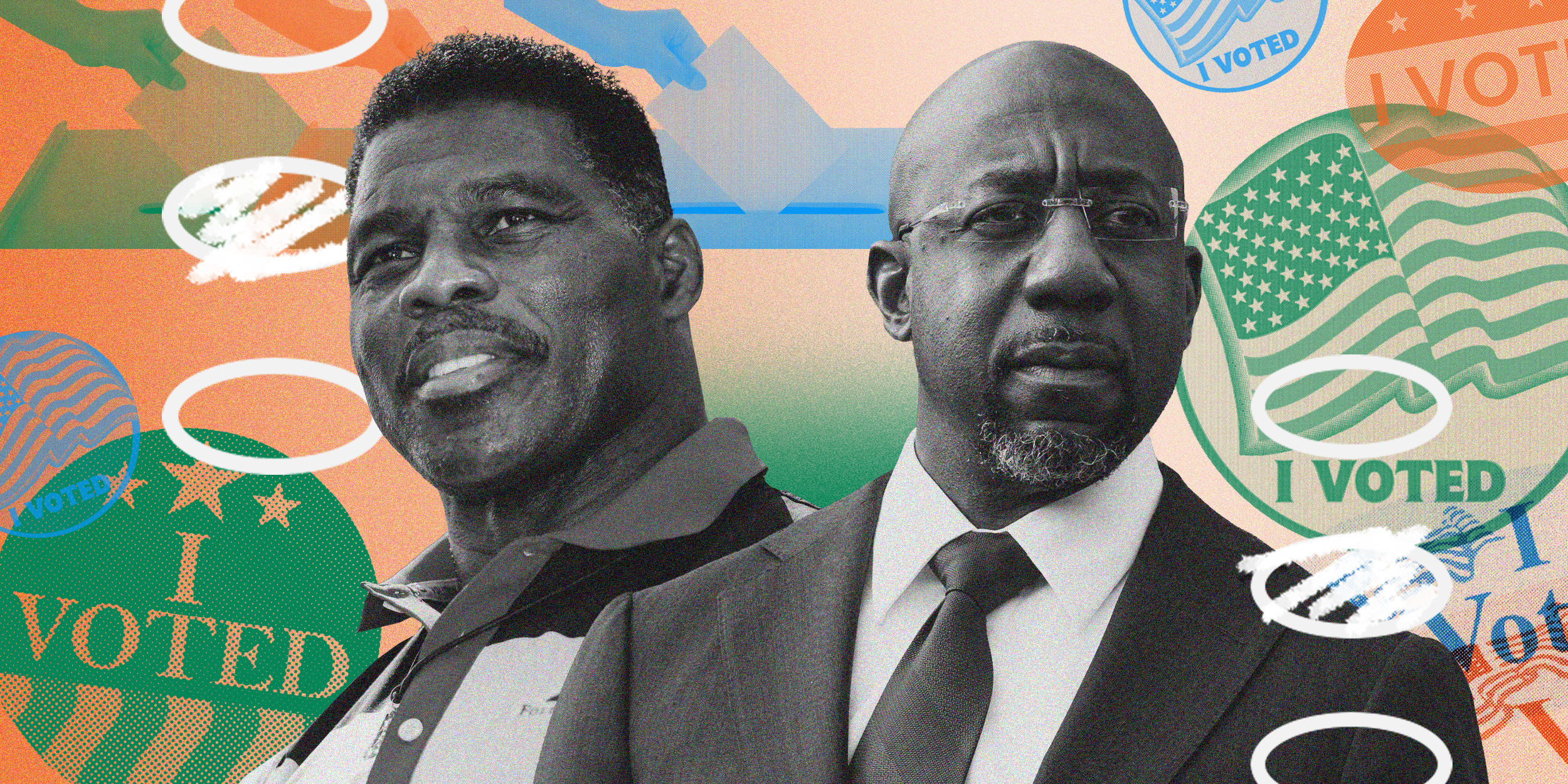 Replied Curtis, “There was a reason Walker (at left) received a tiny fraction of the Black vote in the general election. (And odds are he did not improve on those numbers in the runoff.) Most Black folks in Georgia were not buying what he and Graham were selling, a Black man spouting GOP talking points. The prospect of Walker as a rubber stamp for Sen. Mitch McConnell was not nearly as attractive as a six-year term for Warnock, someone a majority of the state’s voters obviously view as effective. . . .”
Replied Curtis, “There was a reason Walker (at left) received a tiny fraction of the Black vote in the general election. (And odds are he did not improve on those numbers in the runoff.) Most Black folks in Georgia were not buying what he and Graham were selling, a Black man spouting GOP talking points. The prospect of Walker as a rubber stamp for Sen. Mitch McConnell was not nearly as attractive as a six-year term for Warnock, someone a majority of the state’s voters obviously view as effective. . . .”
Separately, Black conservative Jason Riley of The Wall Street addressed the racial issues from another angle, pooh-poohing, with the victory of Karen Bass in Los Angeles, the election of what will be four Black mayors in the nation’s four largest cities. “Historically, however, more black political clout hasn’t been a big deal, if the measure is black upward mobility,” Riley wrote Nov. 29.
Riley cited the Irish in the mid-19th to early 20th centuries. “Despite their political prowess, the Irish were the slowest to rise economically of the European ethnic groups. Notably, it wasn’t until the decline of these patronage machines beginning in the 1940s that an Irish-American middle class emerged. . . .
“Two centuries of enslavement and another century of Jim Crow obviously make the black experience in America unique, but that doesn’t mean no lessons can be drawn from the experiences of others. One lesson is that cultural habits can change. Another is that the development of attitudes, skills and behaviors conducive to economic advancement is far more important for lagging groups than electing people who share their racial or ethnic background.”
- Perry Bacon Jr., Washington Post: Values-based politics are winning politics for Democrats
- Charles M. Blow, New York Times: Georgia Voters Defy Efforts to Suppress Them
- Jarvis DeBerry, MSNBC: Raphael Warnock’s win over Herschel Walker is bigger than politics
- Renée Graham, Boston Globe: Warnock won. That doesn’t negate voter suppression laws.
- Emil Guillermo, Asian American Legal Defense and Education Fund: Warnock saw Asian Americans and helped people see the future of politics
- Feven Merid, Columbia Journalism Review: How Capital B is covering Warnock v. Walker
- John McCormick and Cameron McWhirter, Wall Street Journal: Georgia Runoff Propels Atlanta TV Station to Ad Cash Crown
- David Von Drehle, Washington Post: The tragedy of Herschel Walker
Press Freedom to Be Topic at U.S.-African Summit
Press freedom will be a topic at a major conference between United States and African leaders in Washington next week, according to a spokesperson for the National Security Council, but how much is anyone’s guess.
 All 49 African heads of state invited by President Biden have confirmed attendance to the U.S.-Africa Leaders’ Summit, Dec. 13-15, designed as “an opportunity for us to meet and listen to African aspirations and help work through challenges,” one of those ubiquitous “senior administration officials” told reporters on a press call Thursday.
All 49 African heads of state invited by President Biden have confirmed attendance to the U.S.-Africa Leaders’ Summit, Dec. 13-15, designed as “an opportunity for us to meet and listen to African aspirations and help work through challenges,” one of those ubiquitous “senior administration officials” told reporters on a press call Thursday.
The “senior administration official” — so identified because of the ground rules — listed journalists among the stakeholders participating, but a National Security Council spokesperson said, ” I don’t believe we’re able to release the full list of those invited.” However, the sessions will be streamed. “We are making as much of the Summit open press as possible, and everything open press will also be livestreamed for the public on the State Department’s website.”
As for press freedom, the NSC spokesperson told Journal-isms, “The Civil Society Forum will convene a diverse range of civil society voices to discuss issues of shared importance between the United States and Africa, including the role civil society plays in facilitating inclusive and accountable governance. The importance of press freedom will be a topic of conversation during this Forum, as well as throughout the Summit.”
President Barack Obama held such a summit in 2014; in 2018, Donald Trump famously referred to “shithole countries.”
The meeting will be the peg for “What Journalists Need to Know About Africa,” a Journal-isms Roundtable taking place post-summit on Dec. 18.
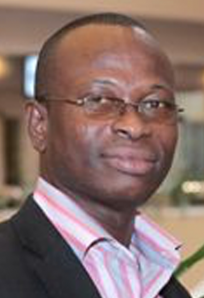 One of the scheduled panelists is Emmanuel K. Dogbevi (pictured), managing editor at Ghana Business News and executive director at NewsBridge Africa. He wrote “In Ghana, Only a Handful of Journalists Are Able To Do Critical Reporting” for Nieman Reports while at Columbia University last summer on a Knight-Bagehot fellowship in economics and business journalism.
One of the scheduled panelists is Emmanuel K. Dogbevi (pictured), managing editor at Ghana Business News and executive director at NewsBridge Africa. He wrote “In Ghana, Only a Handful of Journalists Are Able To Do Critical Reporting” for Nieman Reports while at Columbia University last summer on a Knight-Bagehot fellowship in economics and business journalism.
Now returned to West Africa, Dogbevi messaged Journal-isms this week, “Most journalists practicing in the West have no idea what it takes to practice journalism in Africa. I see that all the time when I am working on collaborative projects.”
Not invited to the summit are Guinea-Conakry, Sudan, Mali and Burkina Faso, whose governments are not recognized by the African Union, and Eritrea, with whom the United States does not have relations.
In a forthcoming piece in the Black Star News, which he publishes from New York, Milton Allimadi, a Ugandan-American, argues that Uganda’s Gen. Yoweri Museveni should be added to the roster of the uninvited.
“It’s hard to imagine [whose] bone-headed decision it was to include Gen. Museveni on the invitation list. Museveni has held power since Ronald Reagan was in office. His tyranny in Uganda and regional militarism — invading Rwanda, Congo, and South Sudan — has spread death and destruction. His conduct repudiates all the ideals the Biden summit claims to support,” Allimadi writes.
- Yasmeen Abutaleb, Washington Post: Biden to call for African Union to permanently join G-20
- Robbie Gramer, Foreign Policy: Biden’s Africa Summit Has Democracy on the Agenda, But Not the Invite List (Nov. 17)
- Tope Templer Olaiya, Guardian: U.S. explains exclusion of five African leaders from summit
- Thomas P. Sheehy, United States Institute of Peace: 10 Things to Know about the U.S.-China Rivalry in Africa
- George White, New America Media: U.S. media fall short in covering African summit (Aug. 14, 2014)
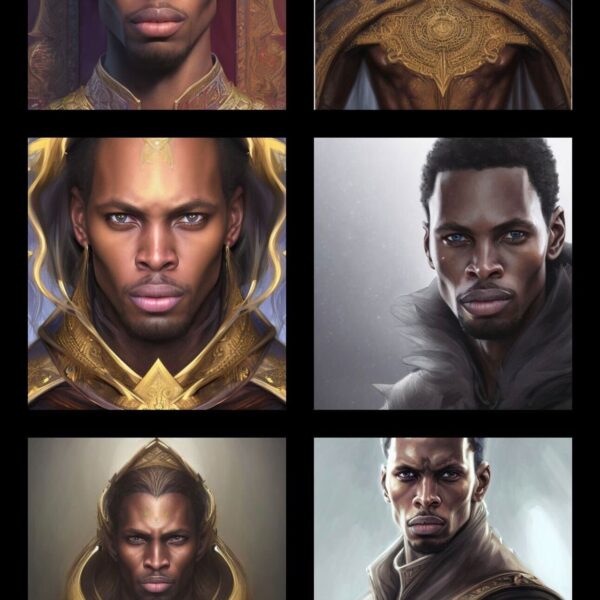
(Credit: Wall Street Journal)
Fun, Unexpected, Uneasy: The AI Version of Himself
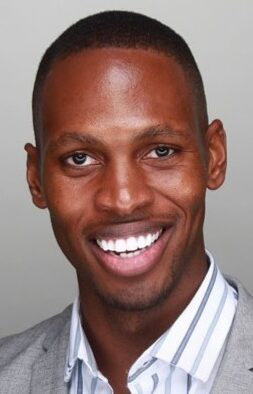 Dalvin Brown (pictured), a reporter at The Wall Street Journal, posted the above artificial-intelligence versions of himself in a story published Tuesday, written with Ann-Marie Alcántara.
Dalvin Brown (pictured), a reporter at The Wall Street Journal, posted the above artificial-intelligence versions of himself in a story published Tuesday, written with Ann-Marie Alcántara.
“Also taking off this week is Lensa, an AI-enhanced photo-editing app for iPhone and Android that’s everybody’s new favorite portrait painter,” they wrote. “It’s the reason so many people in their social-media and dating-profile pictures suddenly look like anime action heroes, magical fairy princesses or the haunted subjects of oil paintings.
“It uses technology from DALL-E 2’s competitor, the image-generating startup Stability AI. It turns uploaded headshots into beautiful, at times trippy, avatars.”
Asked what he thought about how Lensa made him look, Brown messaged Journal-isms, “It runs the gamut. I got a very wide range of portraits. Some, I was pleased with: It was fascinating to see myself as sci-fi movie characters and abstract oil paintings. Many seemingly drew inspiration from African cultures, giving me tribal necklaces, abstract face markings and whimsical head scarves. Contrastingly, the AI also erased some culturally identifiable features and gave me traits I was uneasy about. In some photos, it trimmed my nose, gave me long straight-ish hair, and blue eyes, for example.
“I also found it interesting that it didn’t seem to draw inspiration from any of my smiling photos. I didn’t know what to expect, other than to expect the unexpected. Overall, it was a fun exercise.”
White, Vargas, Baldonado Leaving L.A.’s KNBC
Veteran reporters Beverly White, Vikki Vargas and Kim Baldonado are among four at KNBC-TV Los Angeles accepting “voluntary early retirement” buyouts who will be leaving the station at the end of this month, Meg James reported Wednesday for the Los Angeles Times, citing three station insiders who were not authorized to comment.
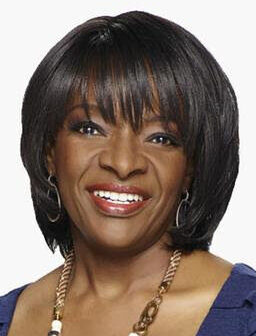 “White (pictured) specializes in breaking news and has covered wildfires, mudslides, the COVID-19 pandemic, street protests, mass shootings and the deaths of music superstars Prince in Minneapolis and Michael Jackson in Santa Barbara. She delivered on-air reports during the deadly 1994 Northridge earthquake. The native of Killeen, Texas, received a lifetime achievement award from the National Assn. of Black Journalists four years ago. . . .
“White (pictured) specializes in breaking news and has covered wildfires, mudslides, the COVID-19 pandemic, street protests, mass shootings and the deaths of music superstars Prince in Minneapolis and Michael Jackson in Santa Barbara. She delivered on-air reports during the deadly 1994 Northridge earthquake. The native of Killeen, Texas, received a lifetime achievement award from the National Assn. of Black Journalists four years ago. . . .
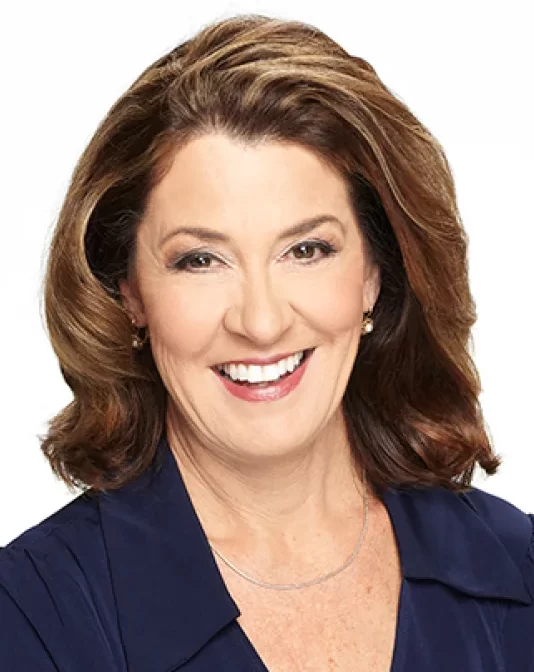 “Vargas (pictured), a Downey native and the station’s Orange County bureau chief, has been part of the Channel 4 news team for more than 40 years.
“Vargas (pictured), a Downey native and the station’s Orange County bureau chief, has been part of the Channel 4 news team for more than 40 years.
“She announced her retirement to her fans on Twitter. ‘I hope to take the skill of storytelling and maybe use it for the greater good, whatever that looks like, but mostly I thank you for being part of this, with me for 40 years. Forty years,’ Vargas said in a video message, her voice choking with emotion. . . .”
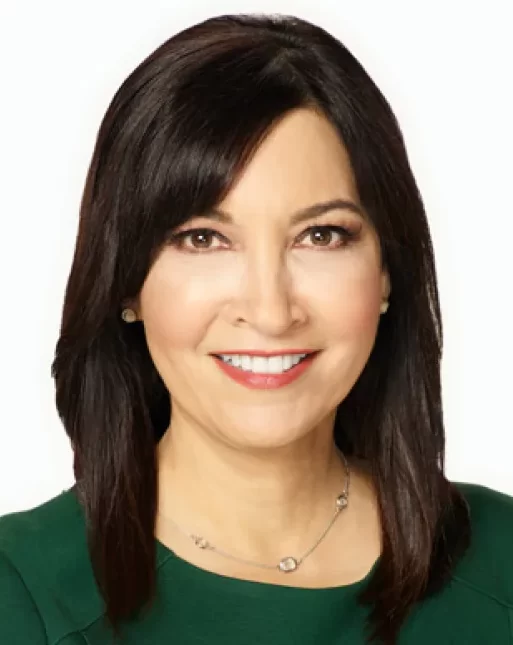 Baldonado (pictured), an Emmy-winning active member of the National Association of Hispanic Journalists and an L.A. native, “started her career in San Francisco as an assignment editor before returning to Southern California, where she worked as a field producer for Fox’s KTTV-Channel 11. Her first on-air reporting job was in Palm Springs. She worked at independent station KCAL-TV Channel 9 before joining KNBC in 1995. . . . “
Baldonado (pictured), an Emmy-winning active member of the National Association of Hispanic Journalists and an L.A. native, “started her career in San Francisco as an assignment editor before returning to Southern California, where she worked as a field producer for Fox’s KTTV-Channel 11. Her first on-air reporting job was in Palm Springs. She worked at independent station KCAL-TV Channel 9 before joining KNBC in 1995. . . . “
Also leaving is reporter Angie Crouch.
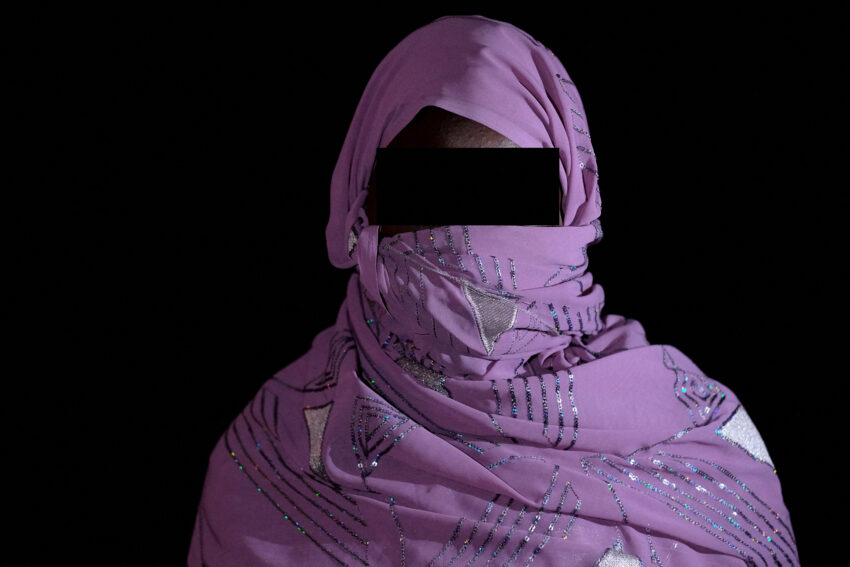
Reuters Reveals Forced Abortions in Nigeria
“Since at least 2013, the Nigerian military has conducted a secret, systematic and illegal abortion programme in the country’s northeast, ending at least 10,000 pregnancies among women and girls, a Reuters investigation has found. Many had been kidnapped and raped by Islamist militants.
“Resisters were beaten, held at gunpoint or drugged into compliance, witnesses say,” Reuters reported Thursday over a story by Paul Carsten, Reade Levinson, David Lewis and Libby George in Maiduguri, Nigeria.
“This investigation is based on interviews with 33 women and girls who say they underwent abortions while in the custody of the Nigerian Army. Just one said she freely gave consent. Reporters also interviewed five civilian healthcare workers and nine security personnel involved in the programme, including soldiers and other government employees such as armed guards engaged in escorting pregnant women to abortion sites.
“In addition, Reuters reviewed copies of military documents and civilian hospital records describing or tallying thousands of abortion procedures.
“The existence of the army-run abortion programme hasn’t been previously reported.
“The campaign relied on deception and physical force against women who were kept in military custody for days or weeks. Three soldiers and a guard said they commonly assured women, who often were debilitated from captivity in the bush, that the pills and injections given to them were to restore their health and fight diseases such as malaria.
“In some instances, women who resisted were beaten, caned, held at gunpoint or drugged into compliance. Others were tied or pinned down, as abortion drugs were inserted inside them, said a guard and a health worker. . . .”
- Michelle Nichols and Reuters team: U.N. secretary-general calls on Nigeria to investigate report of forced abortions
Press Freedom Winner: Why I Had to Leave Cuba
Abraham Jiménez Enoa, a freelance Afro-Cuban journalist who fled the island because of harassment from the Cuban government, was the only Latin American awarded the International Press Freedom Award last month from the Committee to Protect Journalists.
Jiménez is a “freelance journalist and co-founder of the online narrative journalism magazine El Estornudo, launched in 2016. He is also a columnist for The Washington Post and Gatopardo,” CPJ said.
Here are his remarks:
“Dear CPJ colleagues, dear colleagues, and guests.
“I was born in a country where all the television channels, all the radio stations, all the newspapers, all the magazines, are by law managed by the Communist Party, the only political organization allowed under the constitution of the republic.
“Deciding to be a journalist in the country where I was born, and trying to tell the story of its reality, means breaking the law. Which turns you into a criminal.
“Thus, the government of my country treats you as such: as a delinquent, as a criminal – simply for wanting to show other citizens the country where they live.
“But today, being a journalist in my country is more necessary than ever. Well, after 64 years of the same government, my country is in danger of disappearing from the nation’s historical memory. That is why journalists in my country today have the honorable mission of putting our bodies on the line given the overwhelming intention of a government that seeks, by any means, to exterminate the stories that lay it bare and reveal it as a dictatorship.
“Making the decision not to let what is happening in my country die, bringing the facts to light, places the physical and mental integrity of those of us who do so at risk.
“I am here reading these words for several reasons. Perhaps the most important is that, like many other colleagues, I have had to go into exile and leave my country in order to protect myself. Nevertheless, my colleagues and I, who have been forced to abandon our homeland, have not stopped, nor will we stop continuing to denounce what is happening in my country, Cuba.
“That is why I want to dedicate this award to all the Cuban journalists who have had to leave their families, their friends, their culture, their idiosyncrasies, their homeland, behind. And to two colleagues, Lázaro Yuri and Jorge Bello, who are today in maximum-security prisons for telling the reality of Cuba.
“We Cuban journalists will not be silent. There is no possible way to leave us without our voice. We Cuban journalists will denounce the outrage of Cuba’s dictatorship until the final second of its existence. Even if we must pay a high price for doing so.”
- 14ymedio.com via LatAm Journalism Review: ‘There is no possible way to leave us voiceless,’ Cuban journalist Abraham Jiménez Enoa said upon receiving the 2022 CPJ’s International Press Freedom Award (Nov. 21)
- Committee to Protect Journalists: CPJ is honored to present its 2022 International Press Freedom Award to Vietnamese journalist Pham Doan Trang (July 14)
- Megan Janetsky, Associated Press: Human rights groups criticize Cuba’s new criminal code
- César López Linares, LatAm Journalism Review: How to tell stories in countries that have non-transparent and authoritarian governments? Latin American journalists shared experiences and strategies (Nov. 14)
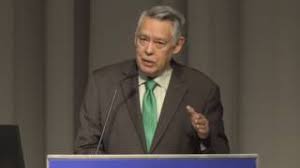
Gonzalez on ‘the Nonsense of Objective Journalism’
Juan Gonzalez, co-host of Pacifica’s “Democracy Now!,” onetime columnist for the Daily News in New York and before that, a reporter for the Philadelphia Daily News, is preparing to leave New York for Chicago.
In a speech at the Columbia School of Journalism, Gonzalez, now 75, “talked about his atypical journalism career and his years as a student activist and organizer with the Young Lords, “Democracy Now!” reported Tuesday. “Juan said, ‘I have been grappling now for more than 50 years — initially as an activist, then for decades as a journalist and a student of history — with the burning issue of how oppressed and marginalized people can best create and disseminate a narrative that truly reflects their lives, not just accepting the simple-minded, stereotypical and often denigrating narratives of them fashioned by those with greater power and wealth.’ ”
Gonzalez is a co-founder of the National Association of Hispanic Journalists and was NAHJ president from
2002 to 2004. He is also a professor at Rutgers University.
Gonzalez also said, “To get back to this issue of objectivity and what’s real journalism, the fact is the press in the U.S. have always been partisan and subjective in their chronicling of reality. In fact, it was Upton Sinclair’s devastating exposure of press corruption in his classic book, The Brass Check, and public revulsion over misinformation by the giant newspaper chains that gave rise in the early 1900s to journalism schools like this one and to organizations like the American Society of Newspaper Editors, that sought to establish basic standards of journalism.
“And it was only in the aftermath of World War II and the creation of the Hutchins Commission that any principles of fair and comprehensive coverage of news events even began to be promulgated widely or that the FCC’s fairness doctrine began to be implemented.
“It was Walter Lippmann, perhaps the most influential journalist of the 20th century, who first dissected the nonsense of objective journalism and first raised the issue of stereotyping in the press.
“As we say in our book, ‘It is the job of the modern journalist to witness events in the wider world and then convey those events and their meaning to the rest of us as quickly as possible. But such reports are fraught with weaknesses inherent to each reporter’s own perception of reality — the subjectivity that so often springs from upbringing, education, class, race, religion and gender.
“The less the journalist knows about the event or the subject at hand, the more likely he or she is to produce a crude or blurred representation of it. Those reports are then further filtered by editors and publishers, who get to decide which portions of the reporter’s dispatch are ‘newsworthy’ and will survive, and which will disappear in the editing process.’ . . . ”
Short Takes
- Jared A. Ball, Ph.D., professor of communication and Africana Studies at Morgan State University and author of “The Myth and Propaganda of Black Buying Power,” is receiving a one-time award of $250,000 as one of the Marguerite Casey Foundation’s latest Freedom Scholars, who are “leading research and engaged in organizing that advances a racial and economic justice agenda,” the foundation announced Tuesday. Now in their third year, the awards support the recipients’ work in whatever way they see fit.
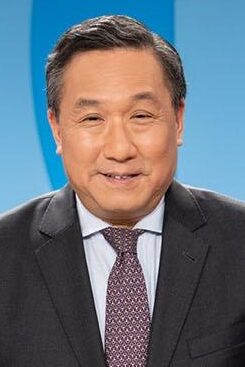 John Yang (pictured), who joined “PBS NewsHour” as a correspondent in 2016, will become anchor of “PBS News Weekend” beginning Dec. 31, PBS announced Thursday. He succeeds Geoff Bennett, who is becoming co-anchor of the weeknight “NewsHour.” Yang is to continue to cover the Supreme Court and other national issues for “NewsHour.” Yang was a Chicago-based correspondent for NBC News, part of an NBC team that reported on “In Plain Sight: Poverty in America,” a 2013 George Foster Peabody Award recipient; and before that, worked at ABC News and The Washington Post.
John Yang (pictured), who joined “PBS NewsHour” as a correspondent in 2016, will become anchor of “PBS News Weekend” beginning Dec. 31, PBS announced Thursday. He succeeds Geoff Bennett, who is becoming co-anchor of the weeknight “NewsHour.” Yang is to continue to cover the Supreme Court and other national issues for “NewsHour.” Yang was a Chicago-based correspondent for NBC News, part of an NBC team that reported on “In Plain Sight: Poverty in America,” a 2013 George Foster Peabody Award recipient; and before that, worked at ABC News and The Washington Post.
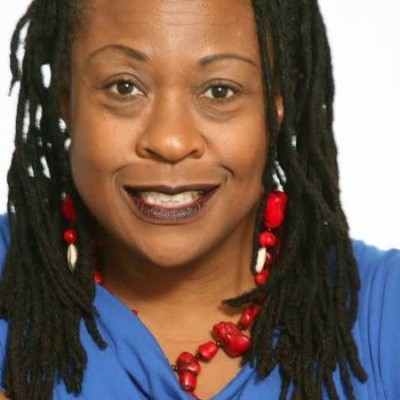 “#Thanksgiving marked my last week with the CHICAGO SUN-TIMES; Dec. 3rd, Exactly 29 years as a #newspaper #journalist,” Maudlyne Ihejirika (pictured) told her social media followers on Nov. 28. “I finally submitted to that still, small voice I’ve learned is God — pushing me to explore additional passion pools in which I’ve waded [in] recent years: commitment to strengthening supports for #journalists and journalism, and dedication to #mentoring the next generation — developed while shepherding journalism organizations; obligation toward diverse narratives and sharing positive stories of Black and Brown communities, nurtured via my ‘Chicago Chronicles’ column of the past six years; and advocacy for #diversity #equity and #inclusion for Black, Indigenous and People of Color (BIPOC) communities. . . . what’s next? How about enjoy the holidays with no work on the brain? Then travel. After, may come longform journalism with local/national digital and magazine publications, continued #publicspeaking, #podcasts, #DEI consulting, academia, and FINALLY, tackling that second book. Between work and raising a family, Escape From Nigeria: A Memoir of Faith, Love and War took 17 years to complete. My second, third, fourth book can NOT take 17 years.😉”
“#Thanksgiving marked my last week with the CHICAGO SUN-TIMES; Dec. 3rd, Exactly 29 years as a #newspaper #journalist,” Maudlyne Ihejirika (pictured) told her social media followers on Nov. 28. “I finally submitted to that still, small voice I’ve learned is God — pushing me to explore additional passion pools in which I’ve waded [in] recent years: commitment to strengthening supports for #journalists and journalism, and dedication to #mentoring the next generation — developed while shepherding journalism organizations; obligation toward diverse narratives and sharing positive stories of Black and Brown communities, nurtured via my ‘Chicago Chronicles’ column of the past six years; and advocacy for #diversity #equity and #inclusion for Black, Indigenous and People of Color (BIPOC) communities. . . . what’s next? How about enjoy the holidays with no work on the brain? Then travel. After, may come longform journalism with local/national digital and magazine publications, continued #publicspeaking, #podcasts, #DEI consulting, academia, and FINALLY, tackling that second book. Between work and raising a family, Escape From Nigeria: A Memoir of Faith, Love and War took 17 years to complete. My second, third, fourth book can NOT take 17 years.😉”
- “Fewer fatal police shootings are recorded by the federal government every year, despite renewed scrutiny of police use of force and millions of dollars spent to encourage local law enforcement to report the data,” Andrew Ba Tran, Marisa Iati and Claire Healy reported Tuesday for The Washington Post. “Even though federal records indicate that fatal shootings by police have been declining nationwide since 2015, The Washington Post’s Fatal Force database shows the opposite is true: Officers have shot and killed more people every year, reaching a record high in 2021 with 1,047 deaths. . . .”
 “Journalists feel that coverage of faith & religion is poor, inconsistent, and becoming more marginalized. [PDF] They express fear around ’getting right’ religious coverage, particularly in largely secular newsrooms.” Other conclusions: “Religious stories are not seen as a good fit for ‘hard’ news, easier to do ‘soft’ coverage and focus ‘hard’ news on times of controversy or scandal,” according to the Inaugural Global Faith and Media Index, produced by a partnership of The Radiant Foundation and HarrisX. The firms call it “The first and largest study of its kind about the portrayal of faith and religion in the news media as seen by newsroom decision-makers and the general population, covering 18+ countries and major religions around the globe.” (Photo credit: Get Religion)
“Journalists feel that coverage of faith & religion is poor, inconsistent, and becoming more marginalized. [PDF] They express fear around ’getting right’ religious coverage, particularly in largely secular newsrooms.” Other conclusions: “Religious stories are not seen as a good fit for ‘hard’ news, easier to do ‘soft’ coverage and focus ‘hard’ news on times of controversy or scandal,” according to the Inaugural Global Faith and Media Index, produced by a partnership of The Radiant Foundation and HarrisX. The firms call it “The first and largest study of its kind about the portrayal of faith and religion in the news media as seen by newsroom decision-makers and the general population, covering 18+ countries and major religions around the globe.” (Photo credit: Get Religion)
- “Americans tend to view racism by individuals as a bigger problem for Black people in the United States than racism in the nation’s laws,” Katherine Schaeffer and Khadijah Edwards reported Nov. 15 for the Pew Research Center. “Black Americans themselves, however, are more likely to say racism in U.S. laws is the larger problem, according to a fall 2021 Pew Research Center survey. . . .” The study also found, “Most White (70%), Asian (65%) and Hispanic (63%) adults say that racism by individuals is the larger of the two issues when it comes to racism against Black people. . . . “

- “Latina Equal Pay Day marks how far into 2022 a Latina who’s employed full-time has to work to earn what her white, non-Hispanic male counterpart made in 2021. It falls later in the year than Native Women’s Equal Pay Day (Nov. 30), Black Women’s Equal Pay Day (Sept. 21), and all other groups measured,” Kate Gonzales, associate editor of the Imprint News in Sacramento, Calif., blogged on the designated day, Dec. 8. “As newsrooms make varying degrees of progress toward better representation, we must resist seeing the presence of Latinas and journalists from other marginalized backgrounds as the finish line. We deserve to be heard, respected and paid well, too. In a culture that will inherently determine our value to be worth less, we must raise our standards for what to expect from the industry. . . .” More from The 19th and Los Angeles Times. (Illustration by Carlos Orozco).
- “For weeks, British newspapers speculated feverishly about who would be most damaged by the claims of Prince Harry and his wife, Meghan, in a much-anticipated six-part documentary series that premiered Thursday on Netflix,” Mark Landler reported Thursday for The New York Times. “Turns out to be the papers themselves. At least in the first three available episodes of ‘Harry & Meghan,’ the greatest villains are not members of the British royal family, as many expected, but London’s newspaper publishers, whom the couple accuse of hounding them, especially Meghan, out of remorseless greed and scarcely concealed racism. . . .”
- When someone goes missing in America, the amount of press their case receives varies by their race, their sex and their location, a systematic bias often termed ‘missing white woman syndrome’, ” says Columbia Journalism Review’s areyoupressworthy.com. “This website calculates your press value based on current reporting in America, to expose this bias and to advocate for change,” it says. Jonathan Franklin of NPR wrote Monday, “This so-called media phenomenon never sat right with Kyle Pope, the editor and publisher of the Columbia Journalism Review (CJR), who in an interview with NPR said something had to be done. . . .”
- In celebrating “Giving Tuesday,” NBCUniversal Telemundo Enterprises announced Nov. 29 that “the network will gift 2,000 laptops to Hispanic youth and community organizations across the country. Additionally, Comcast will partner with Telemundo to help increase awareness of the Affordable Connectivity Program (ACP), which provides eligible households with a credit of up to $30/month towards broadband internet service. . . . “
- “Al Roker’s presence was felt on Wednesday’s episode of the Today show when co-host Craig Melvin gave an update on the beloved 68-year-old weatherman’s health,” Tionah Lee reported Wednesday for ETOnline. ” ‘Mr. Roker is still recovering,’ Melvin said during the third hour of the news program. ‘He is watching this morning, providing real-time feedback.’ . . . Just ahead of the Thanksgiving holiday, Roker was hospitalized after a blood clot in his legs moved to his lungs.” Friday update
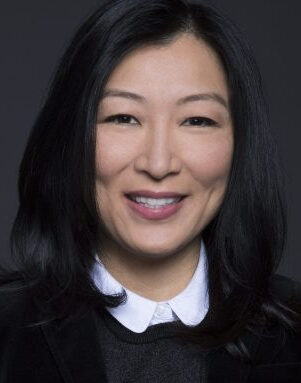 “Catherine Kim, a senior NBC News executive who has played a significant role in the evolution of the company’s digital efforts, will now have more say over some of its TV work as well,” Brian Steinberg reported Nov. 30 for Variety. “Kim, who has been senior vice president of digital news for NBC News and MSNBC, was named senior vice president of NBC News Editorial on Wednesday, charged with oversight of editorial units across both digital and TV. The job will include supervising groups devoted to coverage of business, technology, climate, health and race and equality, NBC News President Noah Oppenheim said in a memo to staffers. . . .”
“Catherine Kim, a senior NBC News executive who has played a significant role in the evolution of the company’s digital efforts, will now have more say over some of its TV work as well,” Brian Steinberg reported Nov. 30 for Variety. “Kim, who has been senior vice president of digital news for NBC News and MSNBC, was named senior vice president of NBC News Editorial on Wednesday, charged with oversight of editorial units across both digital and TV. The job will include supervising groups devoted to coverage of business, technology, climate, health and race and equality, NBC News President Noah Oppenheim said in a memo to staffers. . . .”
- “AAJA analyzed the number of Asian American Pacific Islander (AAPI) reporters, anchors, meteorologists and hosts in the top 20 TV markets. Nearly 25 percent of stations have no AAPIs on air and more than 70 percent have inadequate AAPI representation in on-air staff. The data is clear: there are not enough AAPIs on local television,” the Asian American Journalists Association announced Nov. 30. AAJA made the same finding after a survey in May. “The conclusions are the same, this full report goes into the details of the data by market, ownership group and individual stations,” Waliya Lari, director of programs and partnerships, messaged Journal-isms.
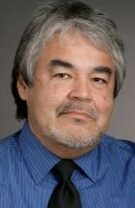 Tommy Cummings (pictured) has returned to the Dallas Morning News as arts and entertainment reporter. “This will be my third stint at the DMN,” Cummings, Muscogee Creek, messaged Journal-isms. “I was hired in 2007 as a digital editor. Laid off in 2016. Came back three weeks later as an editor on the audience team. Left in 2018 to work for a tech company near where I live in Mansfield, Texas. Went into semi-retirement after COVID hit. Got bored, started freelance work for DMN and others in 2021. Hired as a digital producer Hired as a digital producer but my stories on entertainment got their attention and they offered me a job as the Arts & Entertainment Reporter. Working for the Dallas Morning News has always been on my bucket list and to go back with a job suited for my interests was a bonus.”
Tommy Cummings (pictured) has returned to the Dallas Morning News as arts and entertainment reporter. “This will be my third stint at the DMN,” Cummings, Muscogee Creek, messaged Journal-isms. “I was hired in 2007 as a digital editor. Laid off in 2016. Came back three weeks later as an editor on the audience team. Left in 2018 to work for a tech company near where I live in Mansfield, Texas. Went into semi-retirement after COVID hit. Got bored, started freelance work for DMN and others in 2021. Hired as a digital producer Hired as a digital producer but my stories on entertainment got their attention and they offered me a job as the Arts & Entertainment Reporter. Working for the Dallas Morning News has always been on my bucket list and to go back with a job suited for my interests was a bonus.”
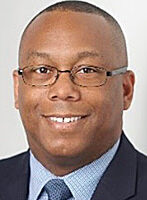 “Michael Lewis (pictured) today was appointed senior vice president and general manager of the Fox duopoly in Phoenix, which consists of KSAZ (Fox) and KUTP (MNT),” Mark K. Miller wrote Monday for TVNewsCheck. “He assumes this position effective January 2023, reporting to Jack Abernethy, chief executive officer of Fox Television Stations. . . . Lewis has been with the Fox Television Stations for 20 years. Most recently, he was senior vice president and general manager of KTBC Austin, Texas, since 2011. . . .”
“Michael Lewis (pictured) today was appointed senior vice president and general manager of the Fox duopoly in Phoenix, which consists of KSAZ (Fox) and KUTP (MNT),” Mark K. Miller wrote Monday for TVNewsCheck. “He assumes this position effective January 2023, reporting to Jack Abernethy, chief executive officer of Fox Television Stations. . . . Lewis has been with the Fox Television Stations for 20 years. Most recently, he was senior vice president and general manager of KTBC Austin, Texas, since 2011. . . .”
- When Rep. Pete Aguilar, D-Calif., appeared on CBS’ “Face the Nation” Sunday after being chosen the new number three Democrat in the House of Representatives and the highest-ranking Latino in congressional history, host Margaret Brennan said she had to acknowledge the distinction. “Being the first is a big deal,” Brennan said. In New Orleans, Will Sutton wrote about Rep. Hakeem Jeffries for NOLA.com under the headline, “A Black man leading U.S. House Democrats is a big deal.” But syndicated columnist Froma Harrop disagrees. She wrote Nov. 25, “This obsession with the racial/gender/sexual identities of politicians has gotten truly old. That Hakeem Jeffries may become the first Black person to lead a party in Congress seems unremarkable after another Black person, Barack Obama, led the entire country. . . . “
- PBS’ “American Experience” Wednesday debuted “The Polio Crusade,” a one-hour documentary from filmmaker Sarah Colt. It points out, “Many Americans believed incorrectly that African Americans were less susceptible to polio than Caucasians. Though the March of Dimes sponsored a large polio unit at the Tuskegee Institute in Alabama, African Americans elsewhere sometimes had to travel far for adequate care.”
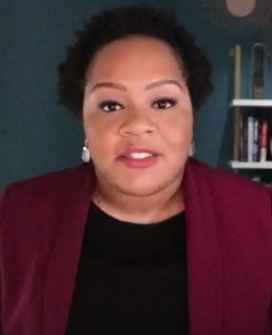 “For so long, we thought of diversity as [if] we were doing people a favor, but no, these journalists that you’re bringing in, whether they’re African American, Native American, whether they’re from rural America, they are doing your newsroom a favor by giving you the perspective to cover stories very well,” Yamiche Alcindor (pictured) said Dec. 1 as she was honored at the National Press Club in Washington with Duquesne University’s Award for Ethics and Integrity in Journalism. “I think not only about, again, racial diversity, but I had family members who were makeup artists, who were working at dry cleaners, who were bus drivers. They were giving me ideas for stories because they were essential workers that we didn’t think about and look who was dying. It was the bus drivers. It was the grocery store workers.” A.J. Katz continued his report for TVNewser, ” ‘So, I think you have to also have the sort of economic diversity so that not everyone’s coming from private schools, or the reverse, which is not everyone’s coming from urban places. You have to have a mixture there to have a robust newsroom.’ ”
“For so long, we thought of diversity as [if] we were doing people a favor, but no, these journalists that you’re bringing in, whether they’re African American, Native American, whether they’re from rural America, they are doing your newsroom a favor by giving you the perspective to cover stories very well,” Yamiche Alcindor (pictured) said Dec. 1 as she was honored at the National Press Club in Washington with Duquesne University’s Award for Ethics and Integrity in Journalism. “I think not only about, again, racial diversity, but I had family members who were makeup artists, who were working at dry cleaners, who were bus drivers. They were giving me ideas for stories because they were essential workers that we didn’t think about and look who was dying. It was the bus drivers. It was the grocery store workers.” A.J. Katz continued his report for TVNewser, ” ‘So, I think you have to also have the sort of economic diversity so that not everyone’s coming from private schools, or the reverse, which is not everyone’s coming from urban places. You have to have a mixture there to have a robust newsroom.’ ”

 MJ Lee (pictured) has been promoted to senior White House correspondent at CNN, the network announced Nov. 28. Lee began covering the White House for CNN in 2021. She was born in South Korea and grew up in Hong Kong, and has a bachelor’s degree in government and Chinese from Georgetown University.
MJ Lee (pictured) has been promoted to senior White House correspondent at CNN, the network announced Nov. 28. Lee began covering the White House for CNN in 2021. She was born in South Korea and grew up in Hong Kong, and has a bachelor’s degree in government and Chinese from Georgetown University.
- The founder of the institute that examines diversity in sports — and issues a report card detailing race and gender among sports media — “is taking to Twitter to highlight weekly examples of racism in sports and elsewhere,” the Associated Press reported Nov. 29. “Richard Lapchick is the founder of The Institute for Diversity and Ethics in Sport (TIDES), which was launched in 2002 at [the University of] Central Florida. He said TIDES found 58 articles in their first week of searching and he highlighted 11 on his Twitter feed. ‘I am doing this because I think most are not aware of the frequency of these divisive and destructive events,’ Lapchick said . . .”
- The Cronkite News newsroom at Arizona State University “recently changed the name of one of our main topics – Indian Country – to Indigenous Communities. The reason: The term Indigenous is viewed by many as more inclusive,” the news operation said Nov. 28. ” ‘Using the more inclusive term of “Indigenous” is an acknowledgement of the cultural preservation and reclamation efforts made not only by Indigenous peoples in the United States and greater North America, but from around the world as well,” said journalism student and former Cronkite News reporter Chad Bradley, Diné, Tábąąhá nishłį́ Tódich’ii’nii bashishchiin. . . .”
Stan Stovall of WBAL-TV, whom Baltimore magazine called one of the city’s most beloved anchors, retired Nov. 23 after a 52-year career. The Baltimore Sun published a photo gallery.
- “With help and encouragement from local journalists, a student chapter of a national Black journalist group has been revived” at Saint Augustine’s University in Raleigh, N.C., the university reported on Nov. 30. The students got a significant boost when the Raleigh-Durham chapter of the National Association of Black Journalists visited the school. “Midway through the meeting . . . Rod Carter, weeknight anchor for CBS 17 TV news, unexpectedly offered to pay the dues for all of the students in attendance to join” NABJ. Dan Holly, the Media & Communications program coordinator, thanked Carter for his gift, and subsequently appointed the SAU-ABJ chapter officers. They met for the first time in three years on Nov. 10. Holly told Journal-isms that Carter paid for seven who joined, for a total of $280, and that he had been an adjunct professor at the school.
- As part of massive companywide staff cuts, “CNN Brazil fired on Thur. Dec. 1 more than 120 professionals, including anchors, reporters and analysts,” LatAm Journalism Review reported Dec. 2, citing Brazil’s Poder360. “In addition to the layoffs, the network also closed its branch in Rio de Janeiro.”
- “The killing in Kenya of an outspoken Pakistani journalist was a ‘planned assassination,’ a team of Pakistani investigators said in a report released Wednesday, weeks after the mysterious slaying triggered condemnations and calls for an independent probe,” Munir Ahmed reported for the Associated Press. “Meanwhile, Islamabad police charged two Pakistani businessmen living in Kenya who had hosted Arshad Sharif in the African country with involvement in his killing. The report offered no evidence for its claims and there was no immediate comment from Kenya. The 50-year-old Sharif was hiding in Kenya to avoid arrest at home on charges of maligning Pakistan’s national institutions — a phrase used for critics of the powerful military, which has ruled Pakistan for half of its 75-year history. . . . News of the killing shook Pakistan and days later, thousands came out for Sharif’s funeral . . . .”
- In Jamaica, “A man who physically and verbally attacked two media workers in [the neighborhood of] Homestead, St Catherine [in the city of Spanish Town, Jamaica] on Wed. Nov. 30 has been arrested and charged by the police,” LatAm Journalism Review reported Monday, quoting Caribbean National Weekly. “Michael Marlyn, a laborer, is charged with assault causing bodily harm and malicious destruction of property. . . Reports are that a Television Jamaica (TVJ) videographer and a Gleaner [newspaper] reporter were covering a protest by teachers at Homestead Primary School. The man punched the cameraman, pulled the microphone cable, and tried to destroy the camera. He also allegedly attempted to seize the Gleaner reporter’s mobile phone and issued death threats to both journalists before he was ushered away by people who intervened. . . .”
- “The Al Jazeera network has submitted a case against Israeli forces at the International Criminal Court (ICC) over the killing of Shireen Abu Aqla,” David Gritten reported Tuesday for the BBC. “The Palestinian-American journalist was shot in the head during an Israeli army raid in the occupied West Bank in May. . . .”
 “Many Ugandan newsrooms are struggling to recover from the economic consequences of the pandemic, raising concerns that the prolonged financial hardship could jeopardize the integrity of journalism by forcing reporters to accept cash from powerful sources,“ Apophia Agiresaasi reported Nov. 24 for Global Press. “Many media houses have shut down bureaus across the country because they cannot afford to pay journalists. Companies like Vision Group have suspended publishing of local language newspapers that can no longer generate advertising revenue, leaving only English-language publications operating, says Fredrick Mugira, a senior news producer at the company. Journalists who are lucky to still be employed say their work has become harder as news media have cut staff and allowances for travel and other expenses, leading many to accept money from some sources they write about. . . .” (Photo from the Uganda Agus, 2018)
“Many Ugandan newsrooms are struggling to recover from the economic consequences of the pandemic, raising concerns that the prolonged financial hardship could jeopardize the integrity of journalism by forcing reporters to accept cash from powerful sources,“ Apophia Agiresaasi reported Nov. 24 for Global Press. “Many media houses have shut down bureaus across the country because they cannot afford to pay journalists. Companies like Vision Group have suspended publishing of local language newspapers that can no longer generate advertising revenue, leaving only English-language publications operating, says Fredrick Mugira, a senior news producer at the company. Journalists who are lucky to still be employed say their work has become harder as news media have cut staff and allowances for travel and other expenses, leading many to accept money from some sources they write about. . . .” (Photo from the Uganda Agus, 2018)
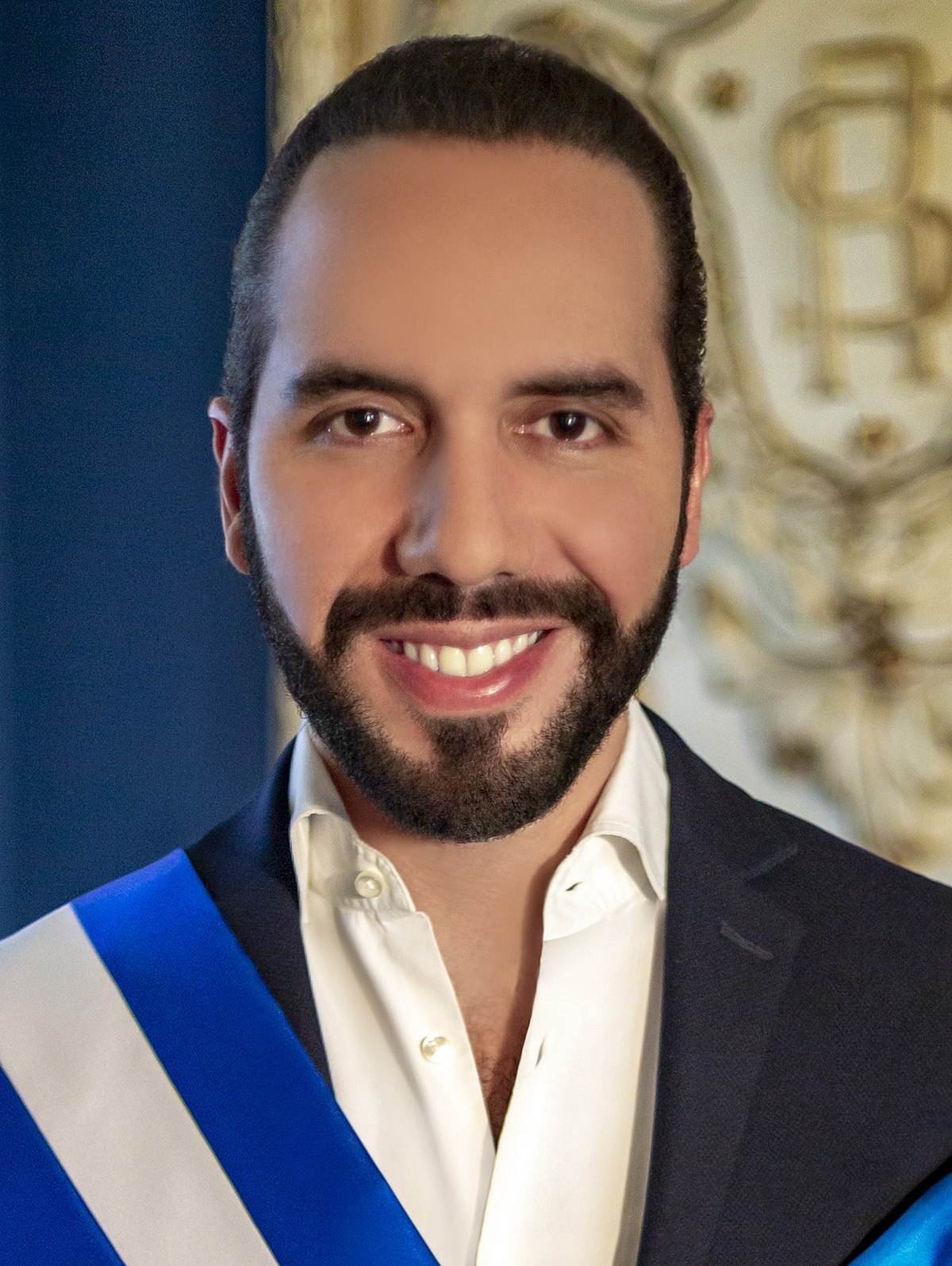 In El Salvador, dozens of paid social media workers are wielding hundreds of anonymous accounts and bots, a megaphone used to amplify President Nayib Bukele’s (pictured) messaging and to “deride opponents and journalists perceived as hostile to his administration, individuals interviewed by Reuters said,” Sarah Kinosian reported for the news agency. “Bukele’s administration also has beefed up resources for traditional state-owned news outlets, which broadcast a steady stream of pro-Bukele content via print, television and radio. Government media now ranks among the sources most trusted by Salvadorans, according to a May 2022 study by the private Francisco Gavidia University in San Salvador. . . .”
In El Salvador, dozens of paid social media workers are wielding hundreds of anonymous accounts and bots, a megaphone used to amplify President Nayib Bukele’s (pictured) messaging and to “deride opponents and journalists perceived as hostile to his administration, individuals interviewed by Reuters said,” Sarah Kinosian reported for the news agency. “Bukele’s administration also has beefed up resources for traditional state-owned news outlets, which broadcast a steady stream of pro-Bukele content via print, television and radio. Government media now ranks among the sources most trusted by Salvadorans, according to a May 2022 study by the private Francisco Gavidia University in San Salvador. . . .”
- “The prominent Guatemalan investigative newspaper “El Periodico’ announced Wednesday that it is stopping its print edition, after the government arrested the paper’s president,” the Associated Press reported Nov. 30. José Rubén Zamora was arrested in July and charged with money laundering and extortion. Zamora has overseen dozens of investigations into corruption during his leadership at El Periodico since the paper was founded in 1996. All of the paper’s reporters have been let go, and it is not clear how it can continue with digital editions only. The government has withdrawn advertising and has allegedly pressured businesses to do the same. . . .”
John W. Fountain’s Farewell Column:
‘A Black Journalist at Last Set Free’
By John W. Fountain
This is the post-mortem of a Black Chicago newspaper columnist and the story of the evolution of a free Black journalist.
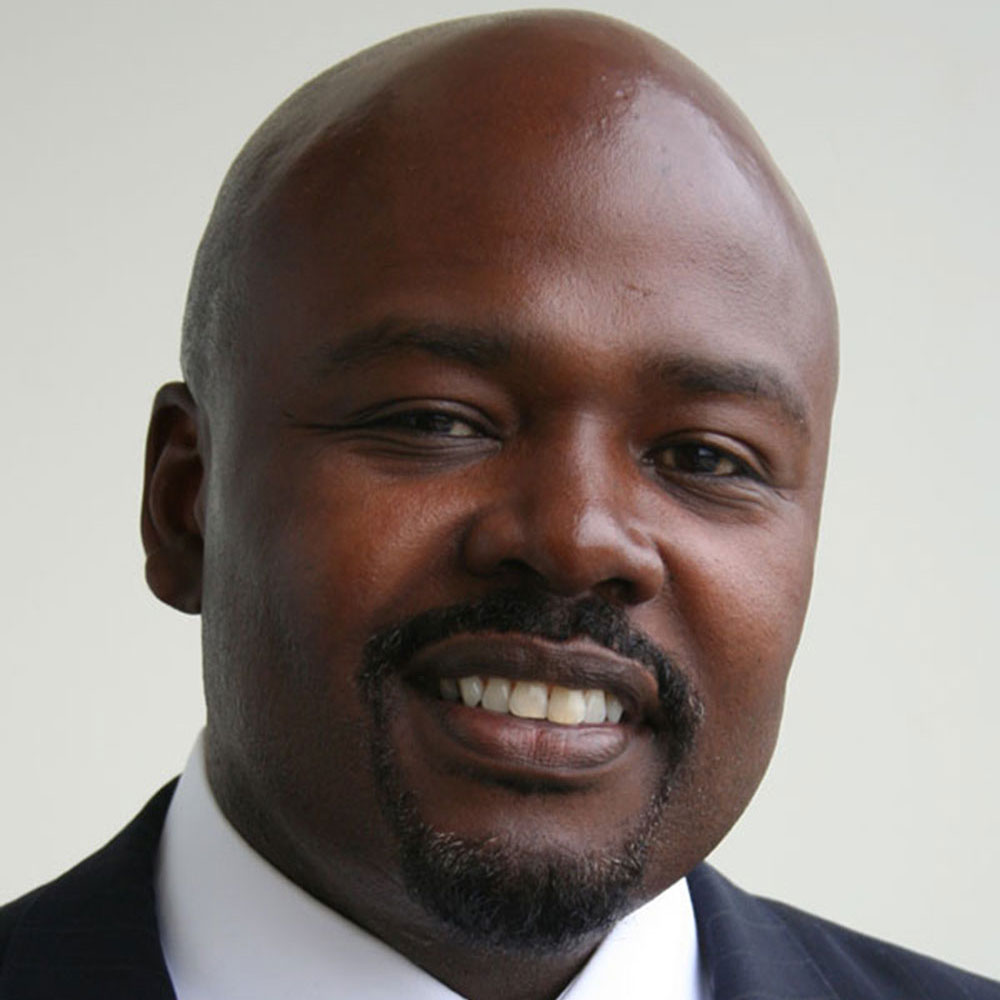 The challenge was always to try to be authentically me in a predominantly white journalism world that challenges, rejects or else seeks to modify our words, voice or perspective. A world in which even some “Black” journalists have, at times, seemed more foe than friend. At least not supportive, or a defender, if not co-conspirators in my tumult and ultimate newspaper journalism demise.
The challenge was always to try to be authentically me in a predominantly white journalism world that challenges, rejects or else seeks to modify our words, voice or perspective. A world in which even some “Black” journalists have, at times, seemed more foe than friend. At least not supportive, or a defender, if not co-conspirators in my tumult and ultimate newspaper journalism demise.
And yet, I am free. At last.
Freer than when I typed my first byline nearly four decades ago, publishing in a mainstream American newspaper. In an industry that has long loathed, rejected or else tolerated, then dispensed of the likes of me, or relegated us to lesser positions while purporting that it cannot find “qualified” Black journalists.
“Never Internalize Their Disrespect.”
They were the words of another Black journalist early on when I contemplated leaving newspapers for a job as a letter carrier. I printed and tacked them to my cubicle in defiance. And also these words from a Pulitzer Prize-winning Black photojournalist:
“You Can’t Argue With Excellence: Be excellent.”
That was always my endeavor. Even when I was overlooked as a reporter, underpaid, or passed over for national or foreign correspondent positions.
Even when I was maligned in newsrooms, treated like a second-class citizen and more like the resident Black man who conjured hate or fear because I fit, in living color, a stereotypical portrait of the big scary, dark-skinned, sullen and angry Black man — no matter how softly I spoke or tried to shrink myself.
Even when as a journalist who — no matter our education, experience or demonstrated talent and commitment — was always “incompetent” until proven competent, a status that always soon evaporated.
Even when my heart was broken and my psyche and confidence seized by the constant bombardment, both inside and outside the newsroom, from those who contended that I could not write, did not belong or deserve to occupy that space as a journalistic storyteller at a major big-city daily.
I decided to persevere. To hold onto Journalism. Not the industry. But the ideal. The belief that the pen is mightier than the sword. Still. That journalism is pure and true. That at its core it seeks truth, shines light, yields hope and possibility, is not corrupted by human frailty, incompetence, favoritism and racial prejudice, which have calcified within its institutions that have left many a Black journalist battered and bruised and too often prematurely exiting this dream they once loved.
I endured. For the love of journalism, for the love of storytelling, for the love of humanity.
Because of my belief in the shining light that is journalism.
And, frankly, because I was too stubborn to quit and unwilling to let anybody make me abandon my first love.
And yet, the time has come to say farewell. To the Sun-Times, which has hosted my column for the last nearly decade and a half. I must say farewell ultimately because my feelings, thoughts, and every word I write must always be my own. And I believe that is no longer possible for me in this newspaper.
Thank you, dear readers. For reading me, for believing in me, and even for challenging me. Your faith in me has meant more than the numerous awards my column has won.
I say farewell. Not because I don’t have anything left to say. But because I do.
So while I say farewell, I also say, “hello” as my demise in these pages has given birth to journalistic storytelling in a new venture, I call FountainWorks NFP. And I will write. No longer a participant in volunteer slavery, but as a Black journalist at last set free.
Free to tell whatever stories I choose exactly the way I choose to tell them. Free at last.
To subscribe at no cost, please send an email to journal-isms+subscribe@groups.io and say who you are.
Facebook users: “Like” “Richard Prince’s Journal-isms” on Facebook.
Follow Richard Prince on Twitter @princeeditor
Richard Prince’s Journal-isms originates from Washington. It began in print before most of us knew what the internet was, and it would like to be referred to as a “column.” Any views expressed in the column are those of the person or organization quoted and not those of any other entity. Send tips, comments and concerns to Richard Prince at journal-isms+owner@
View previous columns (after Feb. 13, 2016).
View previous columns (before Feb. 13, 2016)
- Diversity’s Greatest Hits, 2018 (Jan. 4, 2019)
- Book Notes: Is Taking a Knee Really All That? (Dec. 20, 2018)
- Book Notes: Challenging ’45’ and Proudly Telling the Story (Dec. 18, 2018)
- Book Notes: Get Down With the Legends! (Dec. 11, 2018)
- Journalist Richard Prince w/Joe Madison (Sirius XM, April 18, 2018) (podcast)
- Richard Prince (journalist) (Wikipedia entry)
- February 2018 Podcast: Richard “Dick” Prince on the need for newsroom diversity (Gabriel Greschler, Student Press Law Center, Feb. 26, 2018)
- Diversity’s Greatest Hits, 2017 — Where Will They Take Us in the Year Ahead?
- Book Notes: Best Sellers, Uncovered Treasures, Overlooked History (Dec. 19, 2017)
- An advocate for diversity in the media is still pressing for representation, (Courtland Milloy, Washington Post, Nov. 28, 2017)
- Morgan Global Journalism Review: Journal-isms Journeys On (Aug. 31, 2017)
- Diversity’s Greatest Hits, 2016
- Book Notes: 16 Writers Dish About ‘Chelle,’ the First Lady
- Book Notes: From Coretta to Barack, and in Search of the Godfather
- Journal-isms’ Richard Prince Wants Your Ideas (FishbowlDC, Feb. 26, 2016)
- “JOURNAL-ISMS” IS LATEST TO BEAR BRUNT OF INDUSTRY’S ECONOMIC WOES (Feb. 19, 2016)
- Richard Prince with Charlayne Hunter-Gault, “PBS NewsHour,” “What stagnant diversity means for America’s newsrooms” (Dec. 15, 2015)
- Book Notes: Journalists Follow Their Passions
- Book Notes: Journalists Who Rocked Their World
- Book Notes: Hands Up! Read This!
- Book Notes: New Cosby Bio Looks Like a Best-Seller
- Journo-diversity advocate turns attention to Ezra Klein project (Erik Wemple, Washington Post, March 5, 2014)
When you shop @AmazonSmile, Amazon will make a donation to Journal-Isms Inc. https://t.co/OFkE3Gu0eK
— Richard Prince (@princeeditor) March 16, 2018

